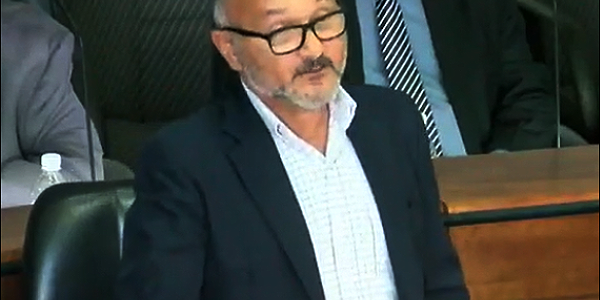LEADER of Opposition Matthew Wale has described the Government’s 100 day policy program as ‘sorrowful’ lacking new ideas or a strategic vision.
Speaking in Parliament on Monday in his response to the Speech from the throne, Hon Wale said 99% of what was in the GNUT 100 day programme merely were inherited from DCGA.
The Opposition Leader said, the excessively high number of policies announced in the 100 day program betrayed the fact that it merely included everything that ministries were already doing under the previous government that might be delivered in the 100 days of the GNUT.
He said it did not provide a sense of GNUT’s reform agenda and priorities.
“When everything the ministries are doing are included in a 100 day program, it implies that government sees everything as having equal importance. In turn, this betrays a sense of a lack of direction, a lack of strategic priorities, and ultimately a lack of a strategic vision,” Hon Wale said.
The Opposition Leader said in our government system, it is important to note that once policy has been accepted as government policy, all new or incoming governments are bound to implement it.
Hon Wale said if the new government rejects a policy or decides to change it, it must be stated clearly.
However, he said the expectation is that incoming governments implement policy inherited from previous governments.
“Such inherited policies need not feature in the incoming government’s policy document – this does not mean a rejection of it, simply a recognition that it is already government policy,” he said.
The Opposition Leader added a 100 days policy for a new government ought to focus on just a few critical low-hanging deliverable policy outcomes that demonstrate the government’s reform agenda and priorities.
On paper, Hon Wale said, the distribution of policy outcomes in the 100 day program appear balanced and in accordance with GNUT’s overall goal of economic transformation.
“Of its 177 policy lines, 37% were on governance, seeking to repair chronic legislative gaps that block economic progress. 36% pursued economic targets. 17% targeted investments in human-capital development through health, education, and skills. The remaining 10% addressed national unity. Although the distribution of policy emphasis in the 100 day program may give the appearance of balance, what is even more important is delivery and outcomes,” he said.
Hon Wale said the fundamental sector’s 50 policies pledged to improve transparency in public finance management, enhancing legislative frameworks to reduce corruption, and institutional capacity building for effective public administration.
He said the productive sector covers 64 policies targeted economic growth through initiatives such as major infrastructure projects, support for export-focused industries, and structural reforms aimed at boosting productivity.
The Opposition Leader said under the resource sector, it covers 26 policies focused on value adding, resilience building in economic sectors, innovation in development strategies, and maximizing revenue from natural resources.
“Lastly, the social sector’s 37 policies promised improved delivery of health and education services, robust public system performance, and targeted interventions supporting economic stability,” he said.
Hon Wale said while these pledges painted a vision of broad national prosperity on paper, it is a vision that would ultimately stand or fall by the Government’s capacity to deliver.
- Opposition Press









